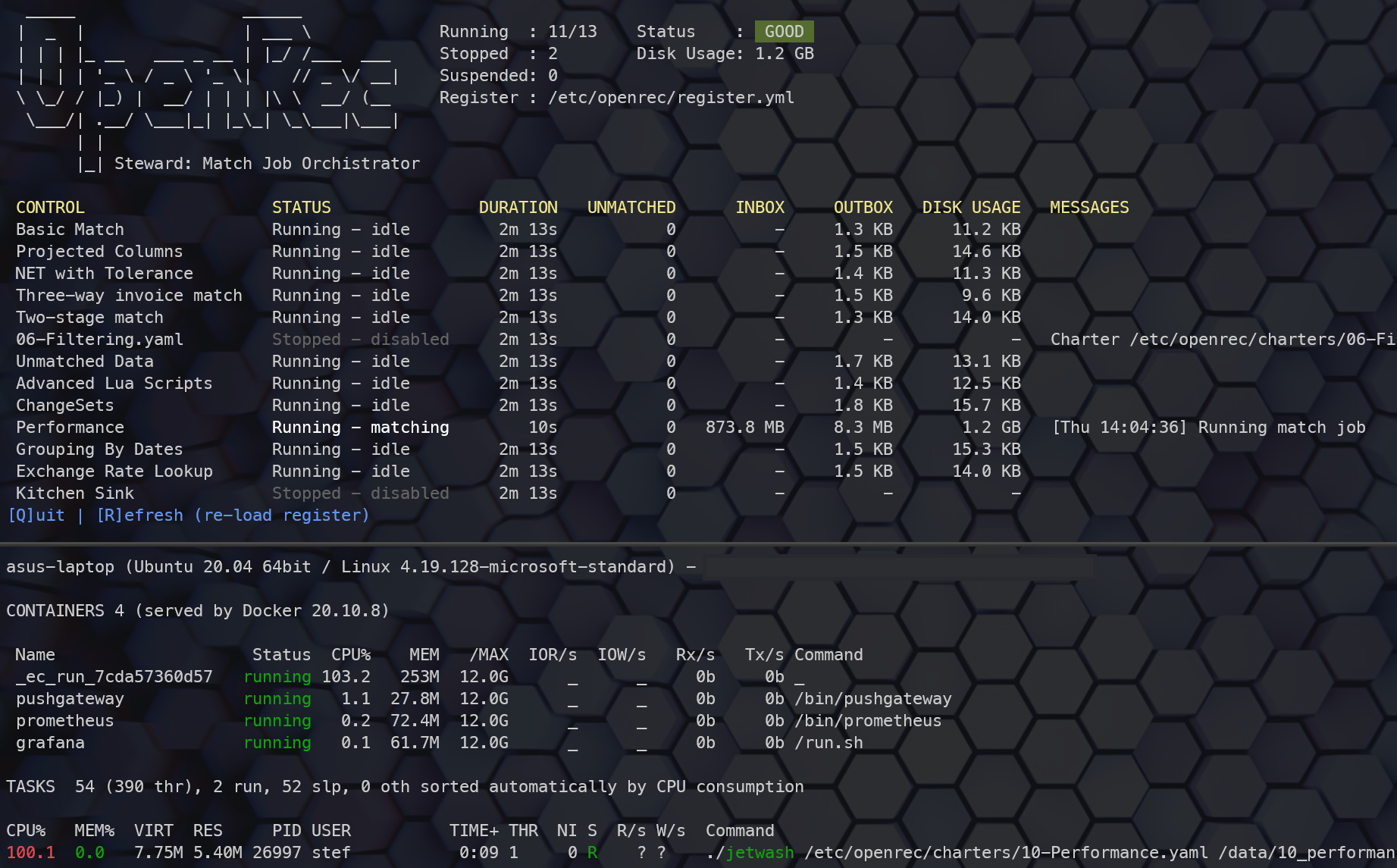It's just files.
OpenRec is a reconciliation matching engine written in the Rust language. It can be used to group and match data presented to it in CSV format using easy-to-configure YAML and Lua rules. OpenRec comprises a small number of modules which are intended to be used as libraries and services within your own enterprise-wide solution.
The motivation for this project was simply personal. I wished to solve the problem of writing a matching engine in a way that wouldn't consume system (memory) resources in a new, modern language. As a result you should take note: OpenRec is a matching engine, not a full solution.
OpenRec will analyse incoming data at runtime to deduce each column's data-type. The only time you'll need to know a column's data-type is it needs to be referenced in a matching rule. Anything not directly involved in a rule is dynamically typed.
Always a subjective term - OpenRec is written in Rust an as such is very efficient, quick (instant) to start and typically matching 1-2 million CSV transactions a minute (subject to specific hardware and configuration).
OpenRec has a very low memory footprint. The matching engine (Celerity) uses an external merge sort algorithm which utilities disk files rather than system RAM to sort and group data. Because of this, you can easily run any number of transactions on a system with barely any memory requirements (GBs of transactions can typically use less than 100MB of RAM!).
OpenRec configuration files (called charters) use a very natural configuration structure which is easy to pick-up and the parser gives great feed-back if mistakes/typos are made.
OpenRec configuration utilizes the Lua scripting language to derive calculated fields and evaluate matching rules. Lua is a well documented and OpenRec provides some very handy helper functions which can also be leveraged (there is much more detail in the examples folder).
The core components are entirely file-based requiring no other dependencies - although you can optionally configure Steward to provide Prometheus metrics (via a Pushgateway). From the outside world, there is an inbox where data is delivered and an outbox where unmatched data is returned (to be consumed by your own systems to allow clerks/operators to investigate and correct).
It's just files.
If you're interested in discovering more, then you should take a look at the following pages
OpenRec Concepts
OpenRec Examples
Getting Started
Finally there's a useful page which discusses a possible failure scenario and details how to recover from it - this would be useful information to have on hand.
The following is on my wishlist of things to tackle: -
- Proposed Groups - The ability to suggest potential groups rather than all/nothing matching.
- Filters - Jetwash should be able to ignore inbound data matching some criteria.
- Group Filters - Celerity grouping should be able to ignore records.
- Abort a changeset - the ability to abort an erroneous changeset.
- Rollback match jobs - The ability to automatically revert jobs.
- Record deltas to generate changesets. This would allow external data updates to modify unmatched data.
- A full-sync control. Where an incoming file represents the current state rather than an appending record batch.
- Lua updates in changesets. Allow Lua to be executed in a changeset, not just direct field value replacement.
- Headless mode for Steward. Currently a console-only application.
- WASM feasibility study. The ability to host the matching engine in a browser would be.... cool.
- Windows support (I suppose)
- Prevent a charter being modified during a match job (i.e. Jetwash uses one ver Celerity uses another)



